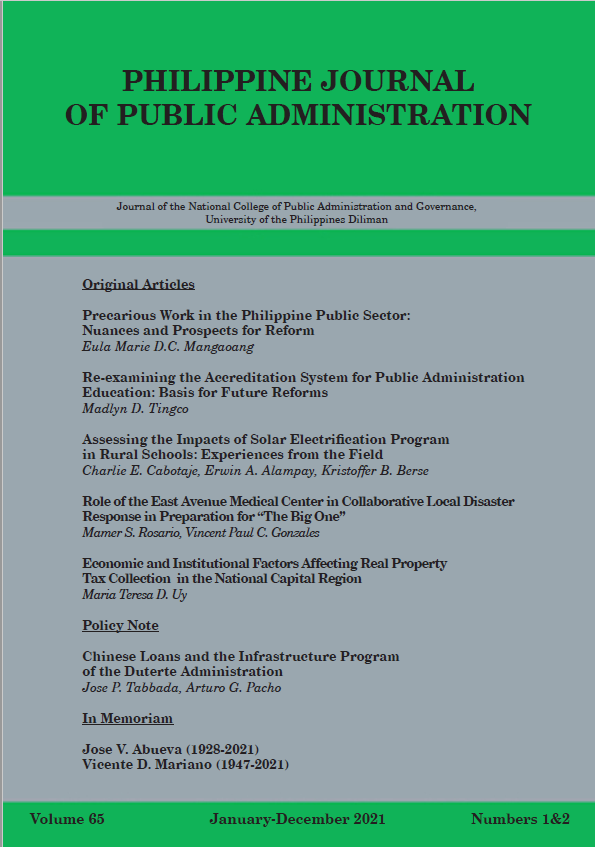Precarious work in the Philippine public sector: Nuances and prospects for reform
Abstract
The study is an attempt to contribute to the dearth of literature on the nuances of public policy governing job contracting in the Philippine public sector and how it maintained the practice through the job-order and contract-of-service (JO/COS) scheme, which employs around 28% of workers without security of tenure and social protection benefits. The study analyzed provisions in civil service, procurement, budgeting and taxation laws and recent policy responses to widespread job contracting in the public sector. Data from key informant interviews with officials from the Philippine Civil Service Commission (CSC) and other government agencies, as well as interviews and focus group discussions with JO/COS workers, served to validate primary data and provide deeper insight into the issues and challenges faced by the JO/COS workers. Results of thematic analysis revealed that certain provisions in laws and policies governing JO/COS schemes make this work arrangement precarious and insecure by reducing work arrangements into contracts, emphasizing the absence of standard employment relations, and giving little to nil emphasis on social protection. Consequently, personal experiences of selected JO/COS workers interviewed in the study confirm adverse impacts of job contracting in the public sector highlighted in existing literature. The article recommends strategies to improve the welfare of JO/COS workers in government. It highlights the need for collective support for these workers and, ultimately, the constitutional mandate of the state to provide decent and secure work across all sectors.
Keywords: public sector employment; precarious work; contractual work; labor protection



